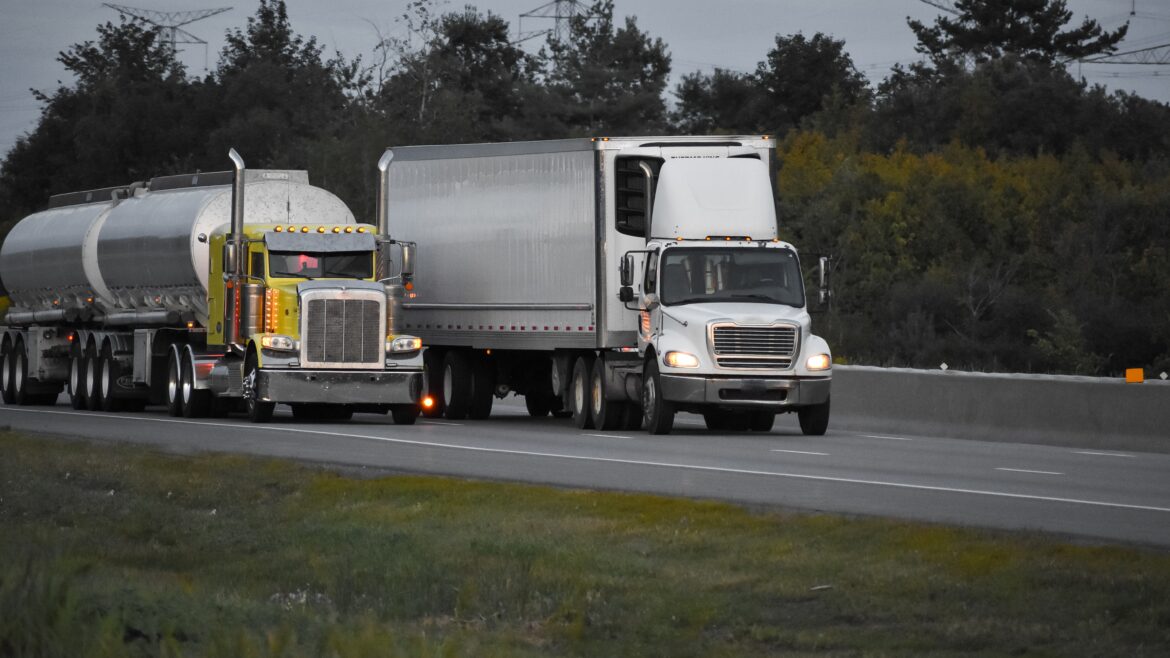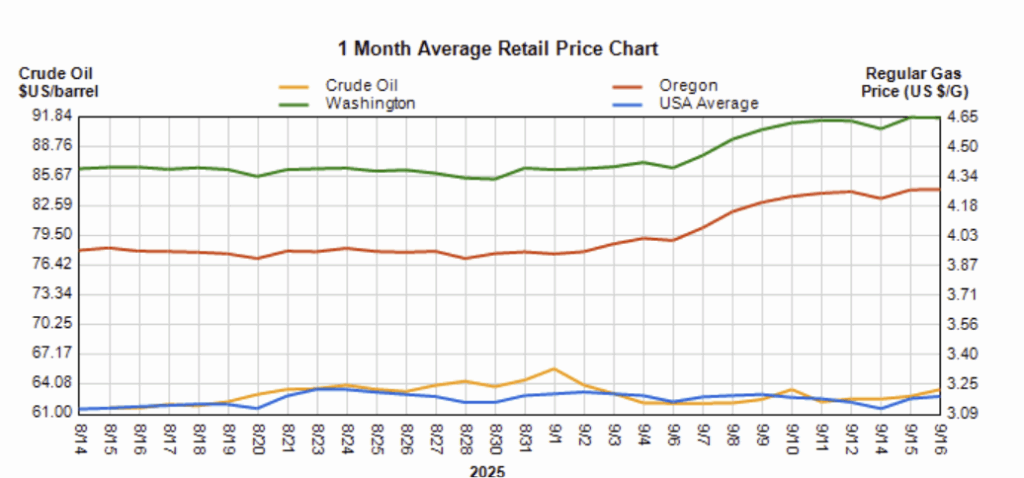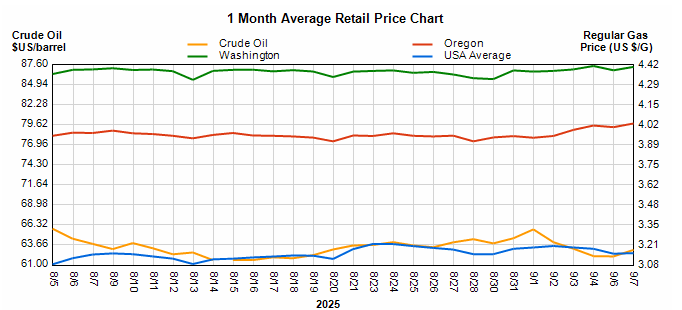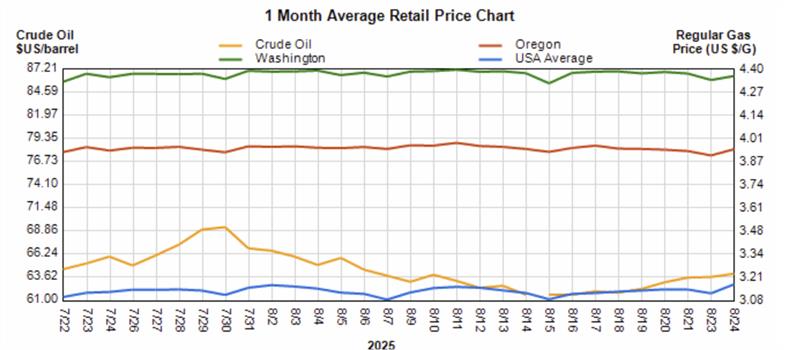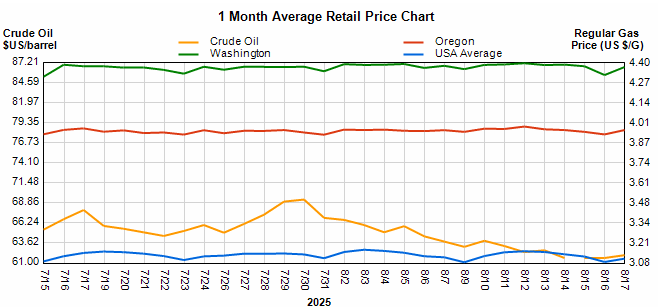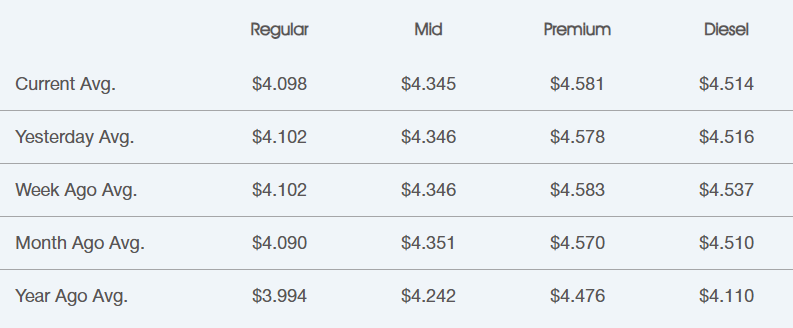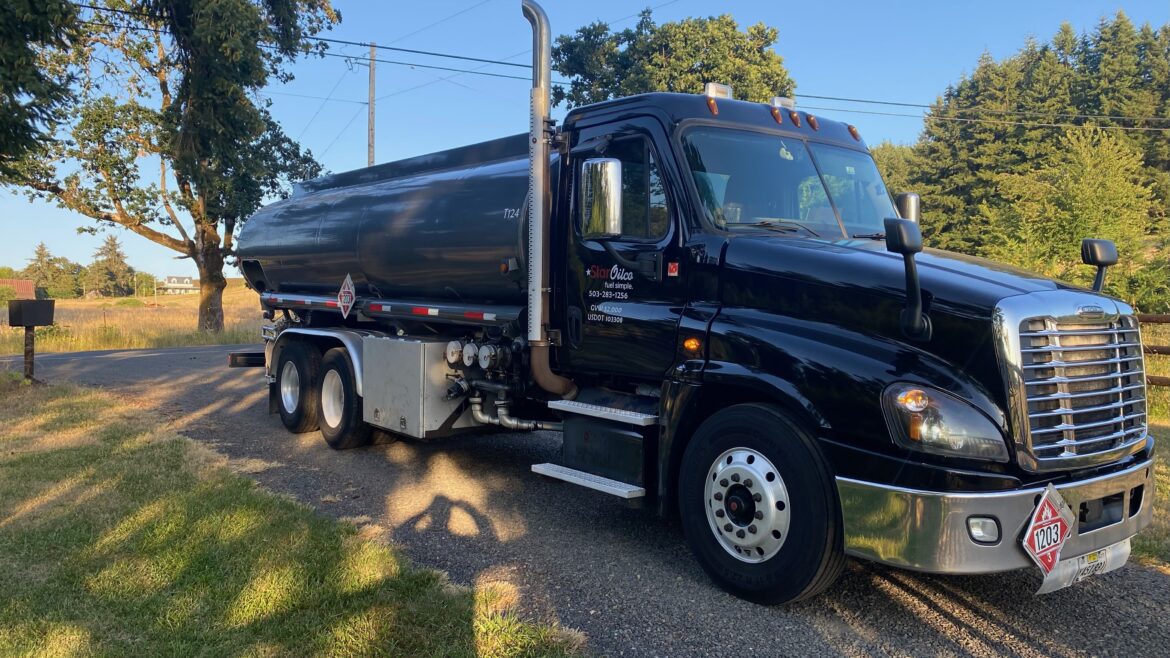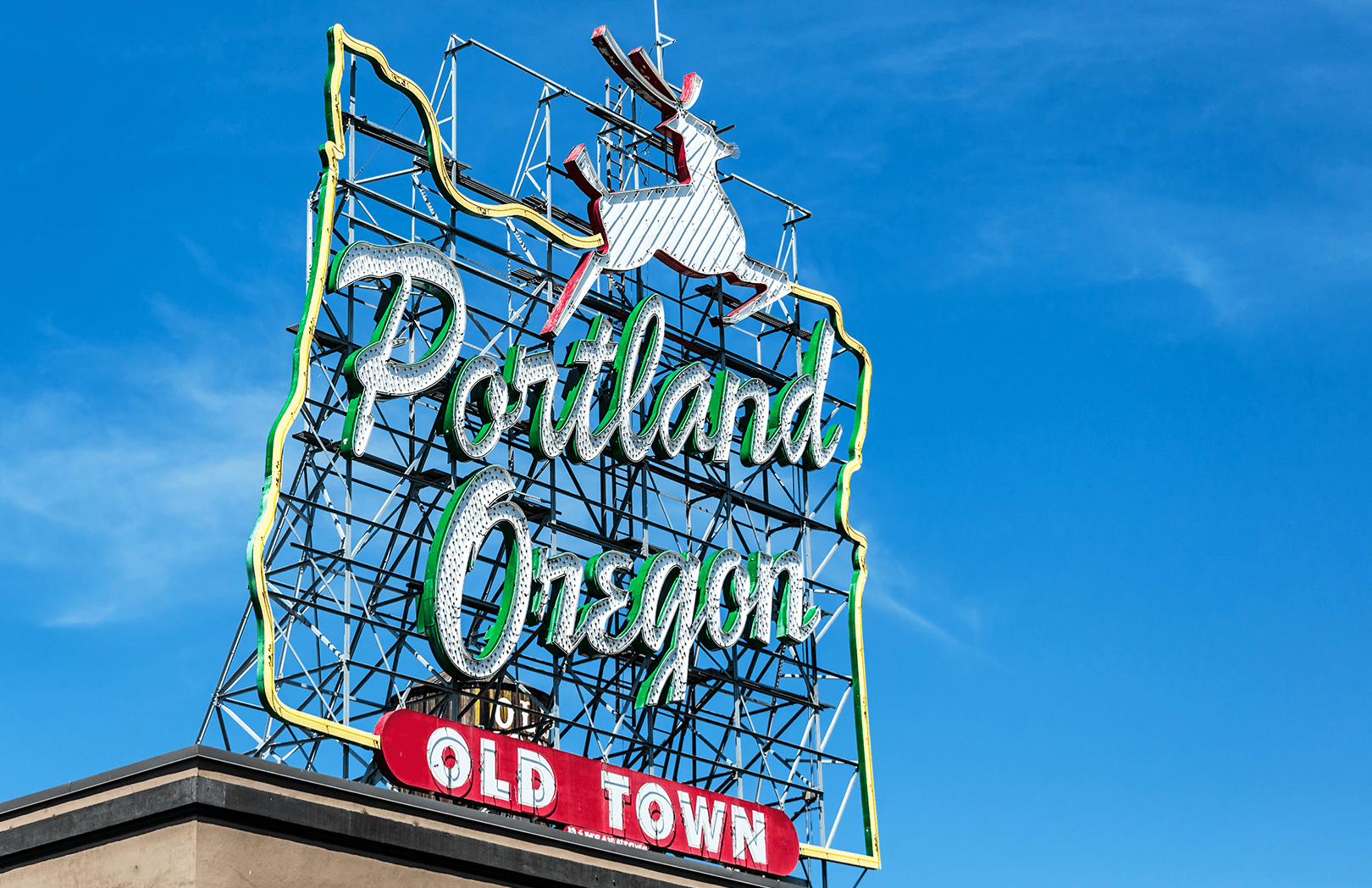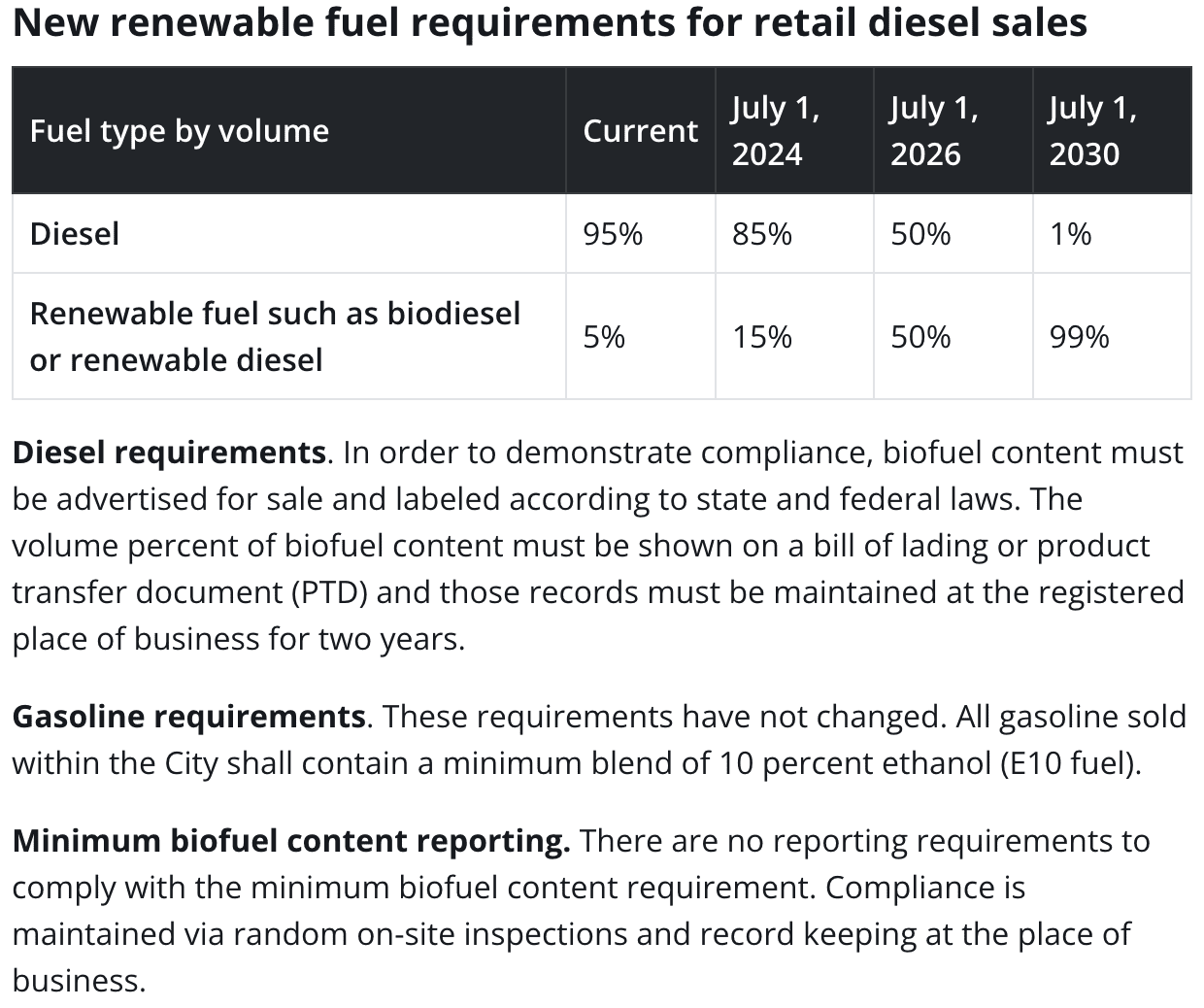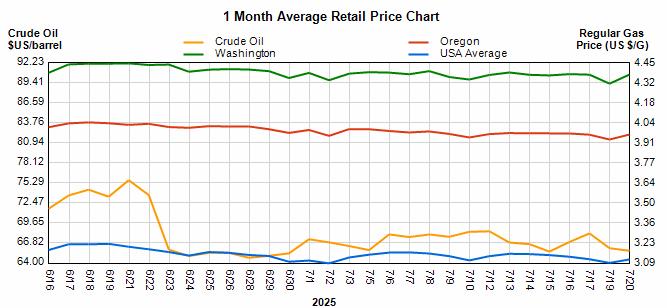Fuel Market Report: Oct 12th – Oct 18th, 2025
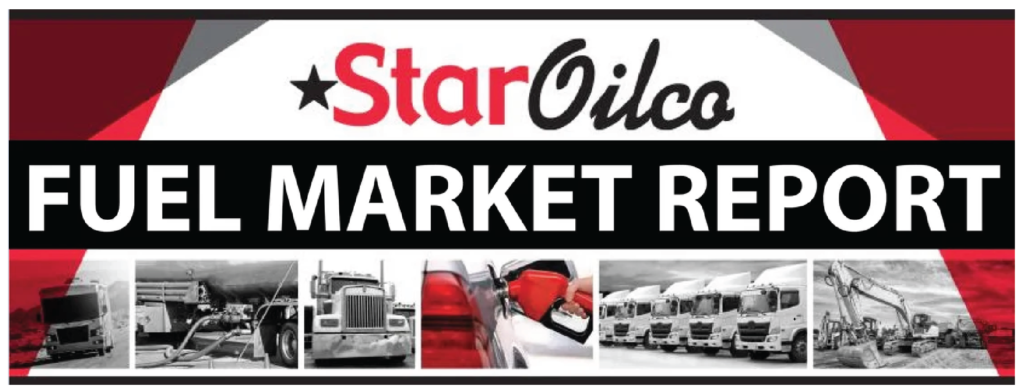
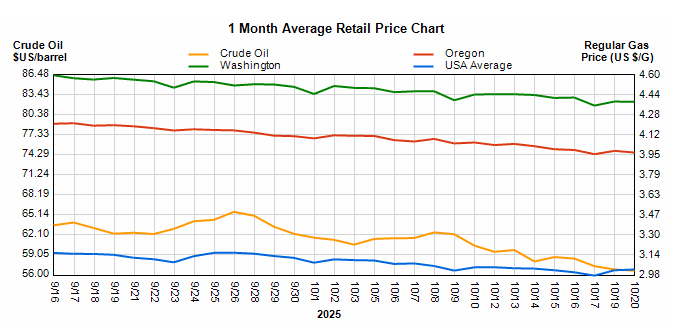
Did You Know That R99 Is The Same Cost As Diesel Currently?
Call to set up R99 Mobile Fueling Onsite Service in Portland at the same cost of retail diesel. Dyed untaxed R99 is also available. Give us a call today to schedule your delivery.
Wholesale Price Average 10/18/25
| Wholesale Low | Wholesale Avg | |
|---|---|---|
| E10 | $2.36 | $2.45 |
| B5 | $2.73 | $2.85 |
| B20 | $2.79 | $2.91 |
| R99 | $2.63 | $2.75 |
Average Retail Prices 10/18/25
| National | Oregon | Washington | |
|---|---|---|---|
| E10 | $3.05 | $4.02 | $4.40 |
| B5 | $3.62 | $4.40 | $5.00 |
Taxes
| Federal | State: OR | Local | State: WA | |
|---|---|---|---|---|
| Gas | $0.184 | $0.40 | $0-.13 | $0.494 |
| Diesel | $0.244 | $0.40 | $0-.13 | $0.494 |
Portland Retail Fuel Price Variance

Fuel Market News
Fuel prices are down across the board this past week, as expected with winter fuel blend on the market and oil prices reaching their lowest price point of the year. Rack averages dropped $0.14/gal for gasoline and $0.08/gal for both B5 & B20 diesel. Fuel prices should continue to fall in coming weeks as oil prices are at the lowest price since 2021. Retail prices for fuel in Portland have not dropped much compared to rack averages but this should change in coming weeks as we roll into autumn and winter in the coming weeks. The refinery fires at Chevron’s El Segundo refinery put a temporary bottleneck on supply and prices in previous weeks but have since been resolved as prices continue to fall.
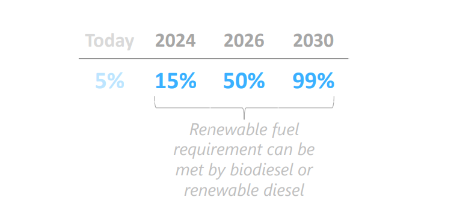
Important Note: Per the City Of Portland, “Distributors in the City of Portland are required to meet the minimum biofuel content requirements for all fuel they distribute beginning on May 15, 2024. All diesel fuel distributed to retail stations, non-retail dealers, or wholesale purchaser-consumers must include a minimum of 15% biofuel content, from either renewable diesel or biodiesel. This requirement increases to 50% on May 15, 2026, and 99% on May 15, 2030”.
Want to know what to expect this Fall in regards to our diesel market? You can read our 2025 Diesel Market Outlook For Oregon.
Crude oil is trading just below $59, at a current price of $57.60/barrel. This is $2.10/barrel lower than it was last week. As oil prices reach their lowest level since 2021.
Crude oil is the main ingredient for gasoline and diesel. Per AAA, on average about 50% of what you pay at the pump is the price of crude oil, breaking down as 25% refining, 11% distribution & marketing, and 14% taxes – a helpful breakdown for consumers wondering why they are paying the prices that they pay. Crude Oil is currently trading at $57.60/barrel compared to $59.70/barrel last week and $69 a year ago.
It’s essential to recognize that fuel prices result from a complex interplay of the factors mentioned above and other regional factors. Additionally, prices may vary by specific regions within Oregon and Washington. For the most precise and up-to-date information on fuel prices and the causes for these price changes within your area, use the links below for AAA & GasBuddy.
If you have any questions, feel free to contact Star Oilco and speak to one of our fuel market advisors to discuss how the market can impact your business.


